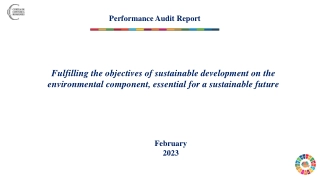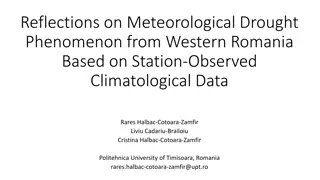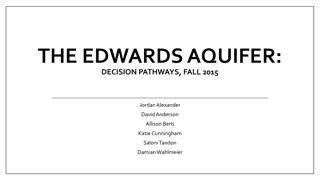
Factors Affecting Resilience in Nurses and Midwives: International Review
Explore the international review of evidence on factors influencing resilience in nurses and midwives, addressing the impact of shortages, increased workloads, and the importance of promoting resilience to enhance well-being and patient care outcomes.
Download Presentation

Please find below an Image/Link to download the presentation.
The content on the website is provided AS IS for your information and personal use only. It may not be sold, licensed, or shared on other websites without obtaining consent from the author. If you encounter any issues during the download, it is possible that the publisher has removed the file from their server.
You are allowed to download the files provided on this website for personal or commercial use, subject to the condition that they are used lawfully. All files are the property of their respective owners.
The content on the website is provided AS IS for your information and personal use only. It may not be sold, licensed, or shared on other websites without obtaining consent from the author.
E N D
Presentation Transcript
An overview of the international review evidence on factors that affect resilience in nurses and midwives Dr Deborah Edwards Senior Research Fellow The Wales Centre For Evidence Based Care 23rd May 2024
Introduction There are an estimated 29 million nurses and 2.2 million midwives worldwide The WHO predicts a shortage of 4.5 million nurses and 310,000 midwives by 2030 Current and future shortages are adversely impacting global health systems
Introduction The shortage of nurses and midwives leads to increased workloads which places undue pressure on existing staff
Resilience Research suggests that resilience may serve as a mitigating factor to such workplace challenges or adversity By promoting resilience among nurses and midwives, healthcare organisations can potentially alleviate the negative impacts of workplace adversity, enhance nurses and midwives' well- being, and improve patient care outcomes
Revisiting Resilience Billie Hunter Professor of Midwifery and Director, WHO Collaborating Centre for Midwifery Development, School of Healthcare Sciences, Cardiff University, Cardiff, Wales Lucie Warren Professional Head: Midwifery, School of Healthcare Sciences, Cardiff University, Cardiff, Wales The Practising Midwife Volume 25 Issue 05 May 2022, Pages 08-13 / https://www.all4maternity.com/revisiting-resilience/
International review evidence in nursing and midwifery Searches conducted Cinahl, PsycINFO and Medline 2014 to 2024 Doctoral thesis Benbow J. 2022. Exploring resilience in contemporary nursing roles in Wales: a mixed methods study. https://orca.cardiff.ac.uk/id/eprint/150378/
International review evidence in nursing and midwifery Majority of research comes from USA, Australia, China Specific groups of nurses Mental health Oncology and palliative care Emergency and critical care Acute care Care home
International review evidence in nursing and midwifery Emotional impact of working within certain settings Risk factors and protective factors Interventions for enhancing resilience
International review evidence in nursing and midwifery Many studies draw on outdated concepts of resilience Definitions of resilience often focus on individual traits like self-efficacy and internal motivation Terms such as recovery, personal strength, and 'bounce-backability' are commonly used to describe resilient nurses Measures used to assess resilience are inconsistent with theoretical underpinnings
Risk factors and adversity Organisational and systematic factors Workplace culture The inherent nature of working in a particular setting
Protective factors and resilience Personal protective factors and resilience strategies External protective factors Individual level Work unit or team level Organisational level Professional level
Taken from Moran et al. 2023 https://pubmed.ncbi.nlm.nih.gov/37551623/
Interventions for enhancing resilience Educational approaches Psychological interventions
Interventions for enhancing resilience Support mechanisms Team resilience Work-based programmes
Summary Resilience is more than individual in nature To develop effective interventions promoting nurse resilience, understanding the impact of external factors on their well-being and retention is essential Positive workplace factors can help resilience: resources, education, and support are key, which are underpinned by strong supportive relationships
Resilience: from problems to enablers
Thank you for listening Email: edwardsdj@cardiff.ac.uk Twitter: @MrsDeborahE Web profile page:






















